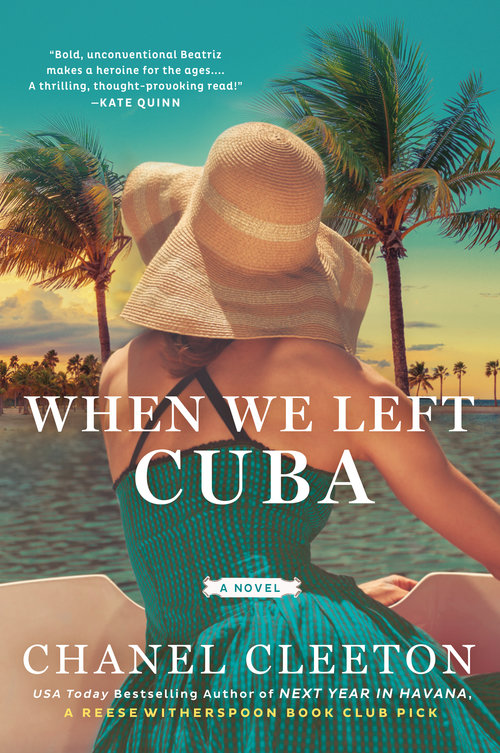Like her previous book about Cuba, Next Year in Havana, Chanel Cleeton's sequel deals with the overthrow of Batista, the rise to power of Fidel Castro and the situation for those who subsequently fled. At the center of the story, once again, is the Perez family; although, this time we follow Beatriz, the one who was considered the wildest of the 4 sisters, the one who chafed most at the life intended for her as a wife and mother. She was also the twin of Alejandro, who was murdered by the revolutionary forces when they drove out Batista, even though he was a student revolutionary himself. It was intended as an unambiguous message that the revolutionaries were coming for her family, whose wealth had been built on a generations-long sugar empire. All that Beatriz wants now is to get revenge on Fidel Castro, the man she believes murdered her brother. So when her brother's best friend, Eduardo, comes to her with a proposition to meet with someone from the CIA, who also wants Castro gone, 22-year old Beatriz becomes a spy. First, she is sent to New York City when Castro comes to address the United
Nations. He is a known womanizer, and Beatriz is, by general agreement, a
beautiful woman. She attends a dinner, is introduced, and he appears
interested, asking her to sit beside him on the podium. But eventually,
she cannot follow through with any sort of liaison and returns home to
Palm Beach. She is then tasked with infiltrateing a local group of Communists/ Castro supporters. Meanwhile, Beatriz has fallen in love with a Senator and would-be president from a politically powerful family who are closely aligned with the Kennedys. He is already engaged, but they are irresistibly attracted to one another and eventually begin an affair. Any plans to get Beatriz close enough to Castro to assassinate him are derailed when there is a fatally flawed attempt to oust Castro by exiled Cubans at the Bay of Pigs. Then Russia ship nuclear missiles to Cuba, precipitating a barricade by the U.S., which is eventually successful in deterring delivery. Finally Beatriz gets her chance. But she has also been betrayed by members of the small Communist cell she was monitoring, two brothers who are Castro's spies in the exiled Cuban community. Her cover blown, Beatriz is still considered useful and spends the rest of her life as an asset of the CIA. She and her lover have been apart all the intervening years; he married, had a family, and stayed in politics. When his wife dies, he comes back to find the woman he loved most in the world. Once again, this is a revealing look at a turbulent time in Cuba's history as well as in the relationship between Cuba and the U.S. The U.S. does not come off looking like the good guys in either book, but neither does Castro. One's sympathies are exclusively for the people exiled from the country they love, ever hopeful to return home.
Glowing reviews from The Washington Post and Publishers Weekly.
Glowing reviews from The Washington Post and Publishers Weekly.

No comments:
Post a Comment